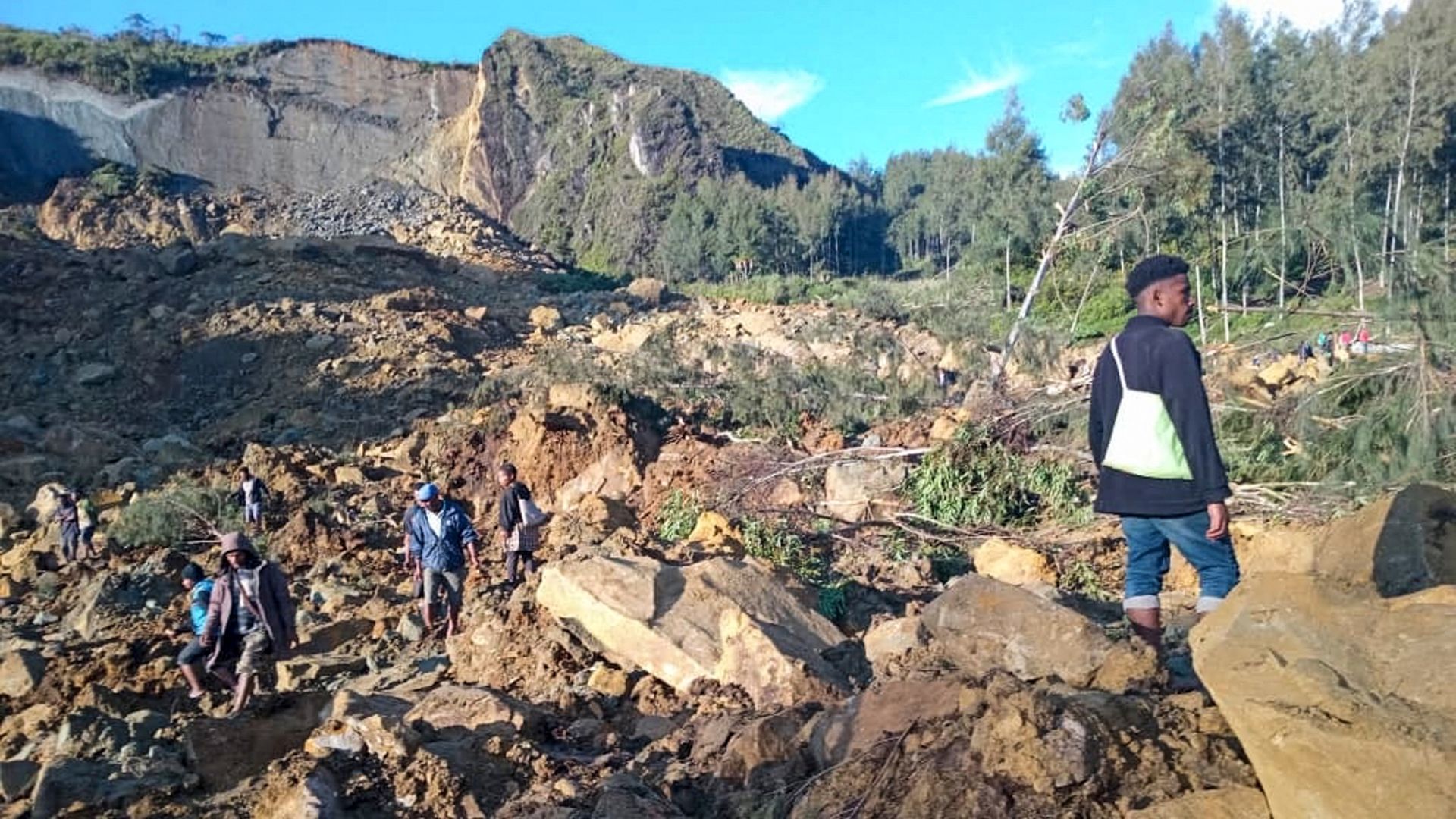Hundreds are feared dead after a landslide flattened dozens of homes and buried families alive in a remote in a remote part of Papua New Guinea.
Rescue efforts are under way in the village of Kaokalam, which lies about 370 miles (600km) northwest of the South Pacific island nation’s capital, Port Moresby.
Disaster struck at about 3am local time on Friday as people slept.
Australian media reported that more than 100 people have been killed – although villagers believe this figure may be nearly 300. No official estimate has yet been made by the authorities.
Footage posted on social media showed locals pulling out people from beneath the rubble.
Kaokalam resident Ninga Role, who was away when the landslide struck, said his brother and cousin were among the dead.
He said: “It’s very impossible, the area covered by the landslide is large and there are rocks and trees everywhere.
“It’s very difficult to get them out.”
Elizabeth Laruma, who runs a women’s business association in Porgera, a town in the same province of Enga, said houses were flattened when the side of a mountain gave way.
Ms Laruma told Australia’s ABC news channel: “It has occurred when people were still asleep in the early hours, and the entire village has gone down.
“From what I can presume, it’s about 100-plus people who are buried beneath the ground.”
Keep up with all the latest news from the UK and around the world by following Sky News
Belinda Kora, a Port Moresby-based ABC reporter, said the authorities had yet to make any official statement more than 12 hours after the landslide.
Read more on Sky News:
Deadly restaurant collapse on Majorca beach
Brother of Israeli soldier taken hostage speaks about ‘nightmare’
She said that with the main road closed, the only way of accessing the village in the mountainous region known as the Highlands is via helicopter.
Be the first to get Breaking News
Install the Sky News app for free
Papua New Guinea is a developing nation made up of mostly subsistence farmers with 800 languages spoken.
Some 85% of its 10 million population live in rural areas.
There are few roads outside the larger cities and telecommunications are poor.





